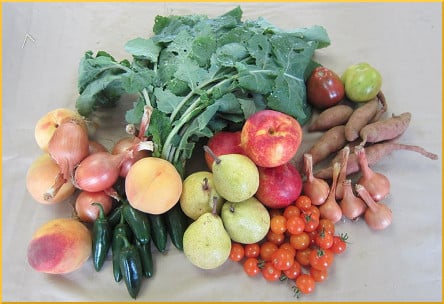
Once again, September is Childhood Obesity Awareness Month, because the problem is still with us. According to the Centers for Disease Control, about 17% of American children are obese, and a lot of them are preschool-age kids. These youngsters face a lifetime — and an unnecessarily shortened one, at that — of physical discomfort, medical problems, and probably mental-health challenges too. The CDC says:
The federal government is currently helping low-income families to get affordable, nutritious foods through programs such as the Supplemental Nutrition Program for Women, Infants, and Children and the Child and Adult Care Feeding Program also called WIC. State and local officials can go a step further by making it easier for families with children to buy healthy, affordable foods in their neighborhoods.
Of course, they also advise that parents and caregivers help the cause by demonstrating healthful habits themselves. More than anything else, kids need a good example. Beyond the personal, there are many more levels of potential involvement.
Some answers apply in the home with the family, and other important answers apply in the larger community. A caring adult will create an opportunity to make a difference. Mrs. Q the Lunch Lady, for instance, is an elementary school teacher who ate what the students were served for lunch, found much to object to, started a blog, and signed a book deal.
A noticeable lack
It is widely acknowledged that these days, too few people have cooking skills. Some schools teach modern versions of what used to be called “home economics.” To produce healthful meals on a daily basis, a real solid knowledge of “scratch cooking” is needed. Also necessary is access to fresh produce, the basis of health-conscious meals.
In Louisville, Ky., an innovative program is called “Veggie Rx” to remind participants that shopping for food is much like filling a prescription. Rather than treat diet-related illnesses with pharmaceuticals, the concept is to treat diet-related illnesses with an improved diet. Veggie Rx is affiliated with Fresh Stops, which is run by the nonprofit New Roots, a kind of farmers’ market co-op whose mission is to “provide local produce on a sliding scale to communities that might otherwise have limited access.” Their website offers a number of resources, including a how-to manual to start a new Fresh Stop locally. The Veggie Rx course is designed to accommodate 20 families at a time, and for a $75 donation they can keep the cooking equipment. Journalist Erica Peterson provides an outline:
The six-week program includes hands-on cooking classes, discussions on nutrition and food justice and physical fitness. And every participant gets six weeks of free produce…. The program is open to all families, but a main caregiver must commit to attending six consecutive weeks of two-hour classes. Each family also must have one child between the ages of 6 and 13, though older and younger children are also welcome to attend.
A course in scratch cooking is always worth the investment of time and/or money. Losing weight is a side effect. The real benefit is in learning respect for food and for the processes of the human body. When you pick up your weekly share of fresh produce, which item needs to be used first before it goes bad? Can it be refrigerated or not? In a loose bag or an airtight one?
Some people don’t even know how to steam rice, or what kind of receptacle to do it in. A person who was not brought up on vegetables has no clue how to even make this stuff edible. How to get the most out of the food dollar, and how to get the best out of the food itself — these are things worth knowing.
Your responses and feedback are welcome!
Source: “September is National Childhood Obesity Awareness Month,” CDC.gov, September 2014
Source: “New Program Prescribes Veggies Over Medicine to Combat Childhood Obesity in Louisville,” WFPL.org, 09/02/14
Source: “NEW ROOTS: Fresh Stops,” NewRootsProduce.org
Image by glass.dimly

 FAQs and Media Requests:
FAQs and Media Requests: 











